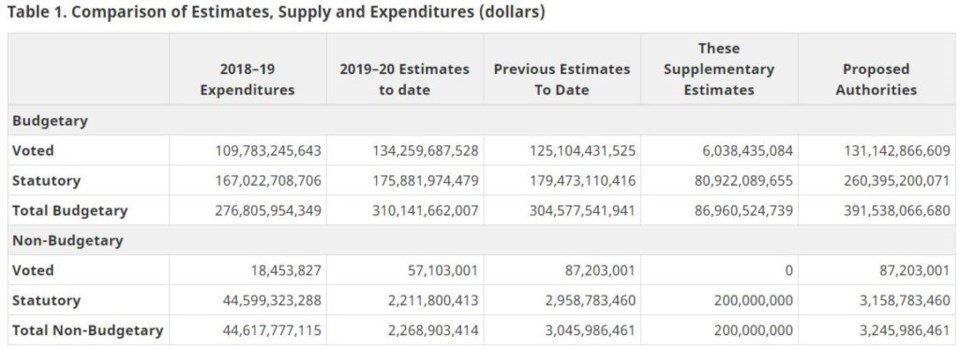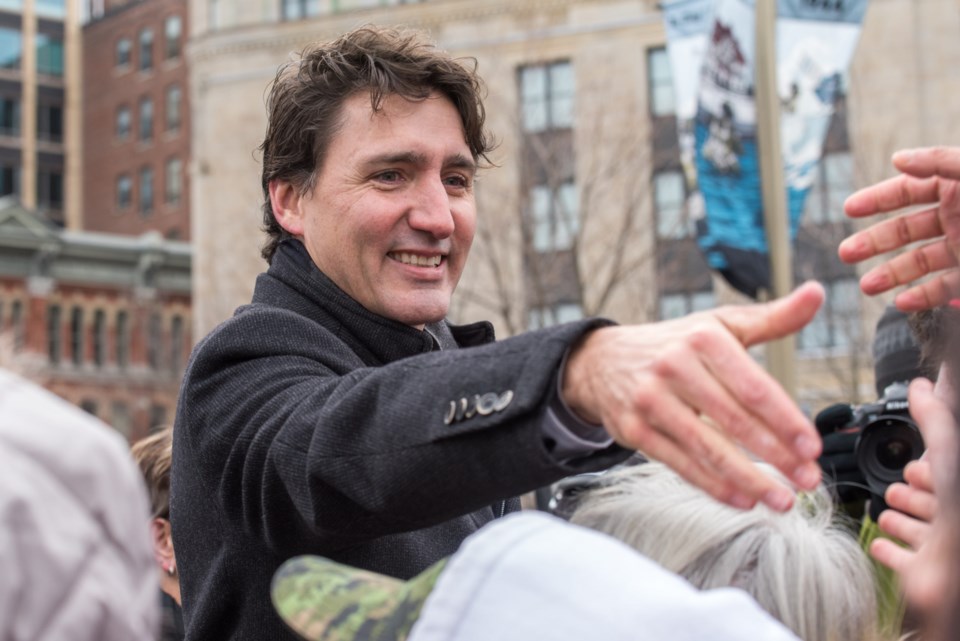In lieu of his now-usual daily press conference at his front step, on Thursday Prime Minister Justin Trudeau held a very different kind of media event.
Speaking at an Ottawa firm that used the federal wage subsidy to stay in business – this was made very clear – Trudeau announced another major funding initiative, $133 million to support Indigenous businesses.
An event hosted by a supportive firm. A photo opportunity of the prime minister touring the facility and meeting employees. A major funding announcement. You don’t have to squint very hard before it starts to look an awful lot like an election campaign.
Is there a chance the Liberals are tempted enough to try and force a (very) early election? Here are two reasons why, and two reasons why not.
Why: Polls
Start with the obvious. Recent polls have consistently shown the Liberals enjoying a comfortable lead, even trending into majority territory. I defy you to find a political strategist wearing those shoes who wouldn’t at least entertain the thought of firing the starter’s pistol (assuming said pistol hasn’t been banned yet).
With one or two exceptions, leaders across Canada have enjoyed a boost in popularity during the pandemic, but there’s nothing to indicate that boost will be permanent. Any governing party would at least be tempted; a minority government looking at a good chance of forming a majority would have to be made of stone not to seriously consider it.
Why: Hobbled opponents
The Liberals’ main opponent, the Conservatives, will almost certainly never be weaker. Already not particularly inspiring, the party’s leadership campaign was postponed for the pandemic, and the ensuing limbo hasn’t helped. Whoever wins in the fall, they’ll still have fresh wounds to heal in the party.
From the Liberals’ point of view, the best case is Conservative polling continues to fall, or at least stall, below recent norms. Worst case, whoever wins finds his or her feet, and starts to win support; an early election would give them less time to build momentum.
With the country in turmoil and suddenly willing (for now) to contemplate radical ideas, the NDP might seem poised to capitalize. But even with mass protests, the NDP isn’t surging in the polls. And worse, the party is broke. Actually, it’s worse than that – they’re in major debt. A national election campaign would be difficult, at best.
The Bloc Quebecois and its leader seem to be performing well (if you’re reading this, you’re not the target audience), but likely at or near its peak. For a party aimed almost exclusively at francophone Quebecers, there just isn’t much more room to grow.
Finally, the Greens are also in the midst of a leadership campaign, which could result in a leader who can attract votes outside Vancouver Island…but there’s a very, very steep hill to climb.
Why Not: Money
Eventually, Canadians are going to see the bill – and figure out how to pay it.
It’s actually kind of difficult to gauge exactly how much is being spent. Next week, Parliament will vote on the government’s supplementary estimates, and $87 billion in “incremental” spending. That would bring the total federal budget to more than $391 billion – again, just for 2019-20. The federal debt may hit a trillion dollars later this year – an inconceivable amount just months ago.

As eye-watering as that is, the bigger question may not be what’s going out, but what’s coming in. With many businesses shuttered and thousands out of work, it’s a given that personal and business tax revenue will take a big hit. But until the government releases a fiscal update (it has been stalling) there’s no way of knowing just how big.
In other words, the issue won’t be spending, but the deficit. The problem is, the federal government was already spending at a record pace. A relic of a pre-pandemic, fully functioning economy, the 2019 budget projected a deficit of just under $20 billion – and again, that’s with Canadians working and paying taxes at something like normal levels.
There probably isn’t a solution that doesn’t include significant tax hikes – and not just on “the wealthy.”
This isn’t to suggest the Liberals should have turned a blind eye, or that the pandemic was in any way their fault. But they will be vulnerable to criticisms they spent the rainy day fund during good, pre-COVID-times; and should a second lockdown be necessary, finance minister Bill Morneau said the government doesn’t have fiscal capacity to withstand it.
Why not: No pressing the flesh
The other, perhaps most important reason a fall election is unlikely is sanity.
It's just not worth the risk. If a candidate contracted COVID-19, and only found out after a few days of shaking hands and touring neighbourhoods, it would be a disaster epidemiologically, but also politically – especially if the election was early, and in many senses, unnecessary.
Assuming public health directives are followed to the letter – no longer a given – we can only imagine what a federal election campaign during a pandemic would look like. No rallies, no leader’s tours, and almost certainly no doorknocking. Most likely, a very leader-focused campaign, with small-scale media events and announcements, looking…well, much like today.
For good or ill, the United States will serve as the world’s guinea pig for a pandemic election in November. Trudeau and his advisors may be best advised to ignore the polls for now, and learn from inevitable mistakes south of the border.
Maclean Kay is Editor-in-Chief of The Orca
SWIM ON:
- Earlier this week, Maclean Kay looked at the last provincial election, which saw three parties take 97% of the vote, and regular polling which gauges support for...four parties.
- in January, Maclean weighed the pros and cons of an early provincial election.
- Maclean's 2019 election night predictions were...actually pretty accurate, if we do say so ourselves.



